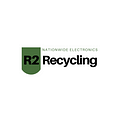R2 Recycling Highlights Why Computer Recycling is a Must for All Businesses
In the business landscape, there are plenty of best practices, marketplace-leading strategies, and recommended methodologies. However, there are scenarios where a particular practice is not merely advised, but rather essential — and according to nationwide electronics recycling leader R2 Recycling, one of the inviolable “musts” on this list is safe, secure, and sustainable computer recycling.
High Financial and Environmental Costs
“Businesses of all sizes are riddled with e-waste, ranging from dusty old monitors in the corner of a warehouse, to printers, photocopiers, fax machines, shredders, and other electronic devices and storage units that have long since reached their end-of-life, and at this point is nothing more than fire hazards,” commented a spokesperson from R2 Recycling, a premier computer, and electronics recycler. “Simply trying to throw these items away in a conventional garbage or recycling container is not just environmentally damaging, but it’s also against the law. Transgressors can face steep fines, along with lasting reputation damage.”.
Aside from preventing significant environmental damage — electronics do not biodegrade, but instead seep into the groundwater system where they ultimately harm people, animals, plants, and the overall ecosystem — there are extremely valid reasons why businesses need to make sure their computer recycling policies and practices are appropriate: the enormous and potentially catastrophic security risks.
Security Risks
“Earlier this year, the OSC fined Morgan Stanley $60 million for a 2016 incident in which the company failed to properly dispose of servers that it decommissioned from two data centers,” commented a spokesperson from R2 Recycling. “Yet despite these massive penalties, many businesses today — including some big firms — still don’t comprehend that cybercriminals and other bad actors can recover data from hard drives that have been formatted, degaussed and wiped using inferior methods, which basically covers any method that is not military-grade and Department-of-Defense certified.”
Still, there are other reasons why businesses should make computer recycling one of the centerpieces of operational strategy and overall corporate commitment: it generates a tremendous amount of goodwill.
Practicing Social Responsibility
Research has repeatedly shown that today’s consumers are interested in doing business with companies that are demonstrating environmental leadership and social responsibility. Furthermore, many businesses in the B2B space such as suppliers and vendors are being asked in RFP competitions what they are doing with respect to computer recycling and e-waste management. Companies that can address this inquiry by pointing to specific programs and strategies — for example, by having a 50-yard lockable container placed on their parking lot specifically to gather e-waste — will get extra assessment points that could translate to winning more bids.
And the good news doesn’t end there. Companies that engage in safe and responsible computer recycling — typically by partnering with a reputable e-waste management partner — enjoy the satisfaction of knowing that electric items and components that are no longer useful to them, will nevertheless have a second (and maybe a third or fourth) life elsewhere; possibly with a non-profit organization or school on a tight budget.
Many businesses, from small firms to large enterprises, have a graveyard of e-waste that is obsolete or doesn’t work, but that doesn’t mean they are useless. In some cases, these items can be rehabilitated in whole or in part. Businesses that enable this can certainly broadcast this effort in their marketing and other communications, which not only impresses customers but is also important to employees who want to work for eco-friendly employers.
As for how to get started — that is, how to turn piles of old computers and e-waste into all of the benefits described above — the process is refreshingly easy and extremely efficient.
“Businesses that want to be part of the electronic and computer recycling solution don’t have to spend time or money trying to figure out what to do with all of their old and unwanted items,” commented a spokesperson from R2 Recycling. “Instead, they just call a reputable recycler like ours and get a fast, free quote based on their specific needs. For some businesses, placing a 40-yard or 50-yard container on their premises is the right solution. For other businesses, having our expert team come on-site and pick-up e-waste is a better option — especially since some types of e-waste need to be handled with care, which involves wearing protective equipment. And still, for other businesses — particularly smaller ones — the solution they need is to pack old computers and e-waste in a car, pick-up, or van, and bring it to our state-of-the-art recycling facility. Regardless of the specific way forward, all businesses have to do is pick up the phone and call or send an email. In less time and with far less hassle than they imagine, they will go from having an e-waste problem to being an e-waste hero.”
Also read, All You Need To Know About DealDash In 2020 — Complete Review
The Bottom Line
For businesses, recycling computers and (finally) saying goodbye to old fax machines should be considered a mandatory requirement to protect the planet, safeguard security, generate new business, engage and retain employees, and be a role model on a business landscape.
Originally published at https://www.whitedust.net on December 4, 2020.
